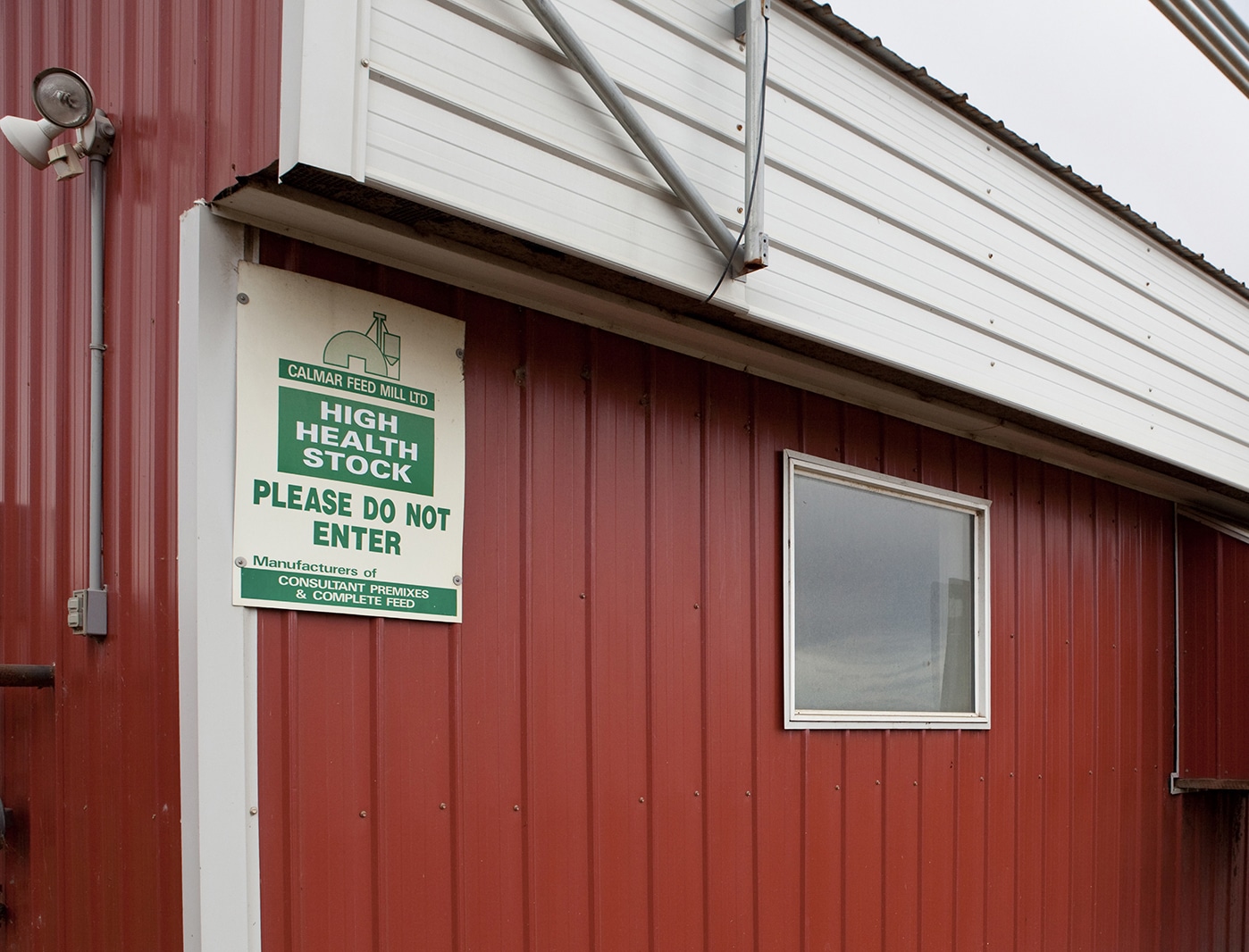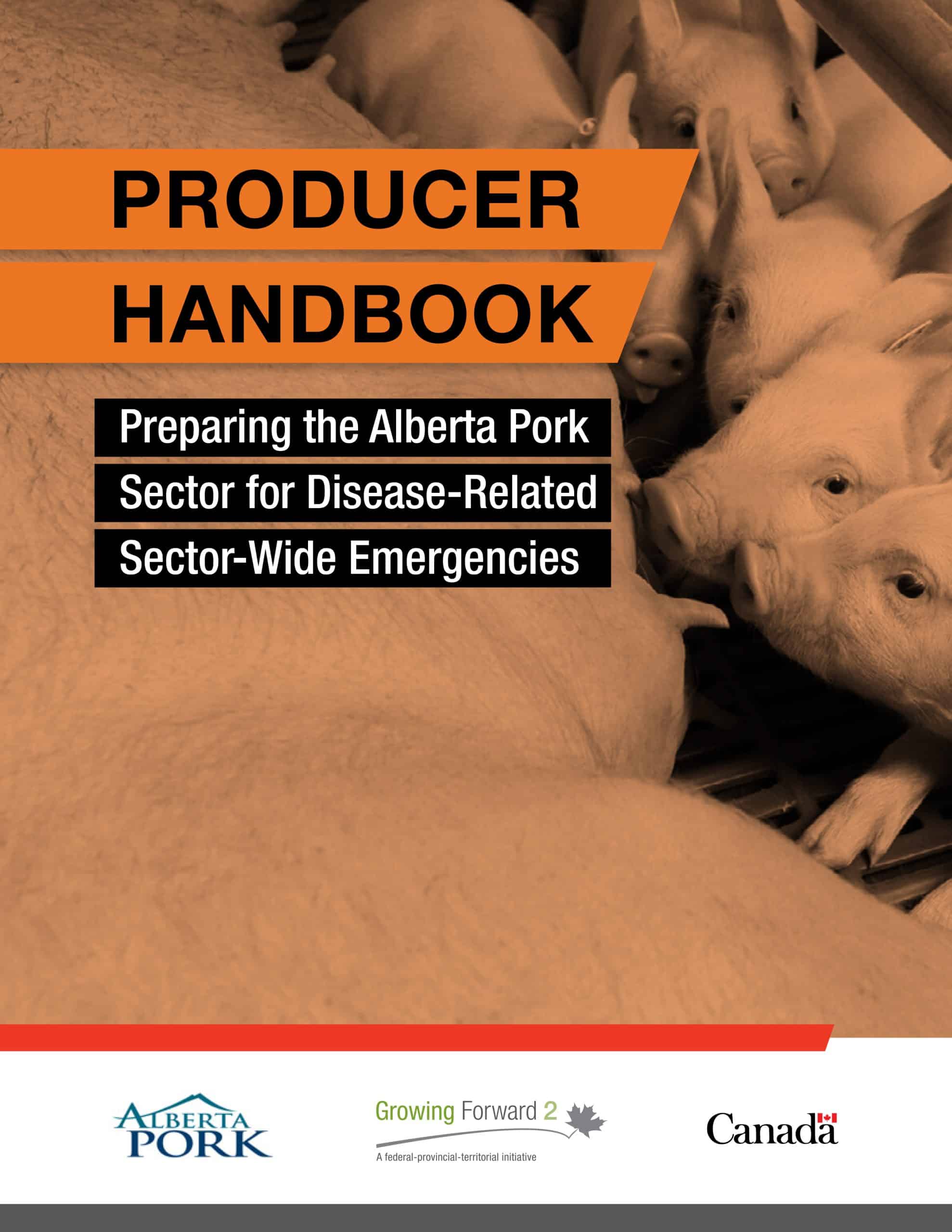Biosecurity
Protecting Herds, Farms, and the Future of Alberta’s Pork Industry
Biosecurity is the cornerstone of disease prevention in pig farming. It refers to the set of practices that keep harmful pathogens out of pig herds and prevent them from spreading between farms. Whether a producer has 10 pigs or 10,000, biosecurity is the most important tool for protecting herd health and ensuring long-term sustainability.
Diseases like African Swine Fever (ASF), Porcine Epidemic Diarrhea (PED), and Influenza can spread quickly and cause devastating losses to individual farms and the broader industry. Because some diseases have no treatment or vaccine, prevention through strong biosecurity is essential. Alberta Pork works with producers, veterinarians, and government partners to raise awareness, provide guidance, and coordinate disease surveillance and response efforts.

Key Components of a Strong Biosecurity Plan Include:
Controlled access:
- Limit who enters barns and maintain strict visitor logs. Separate clean and dirty zones to reduce contamination risk.
- Animal movement control: Quarantine new animals before mixing with the herd. Avoid returning animals to the farm.
- Thorough cleaning and disinfection: Regularly clean transport vehicles, equipment, and footwear.
- Feed and water safety: Ensure feed sources and storage are secure from wildlife and contamination.
- Monitoring and reporting: Observe pigs daily for signs of illness and contact your veterinarian if disease is suspected.
Expert Guidance
Alberta Pork also supports producers in developing farm-level biosecurity plans and emergency preparedness strategies. Collaboration across the supply chain—from farm to processing—is critical to protecting Alberta’s herds and maintaining access to international markets.
Biosecurity isn’t just about preventing disease; it’s about protecting livelihoods, animal welfare, and the trust that consumers place in Canadian pork.

